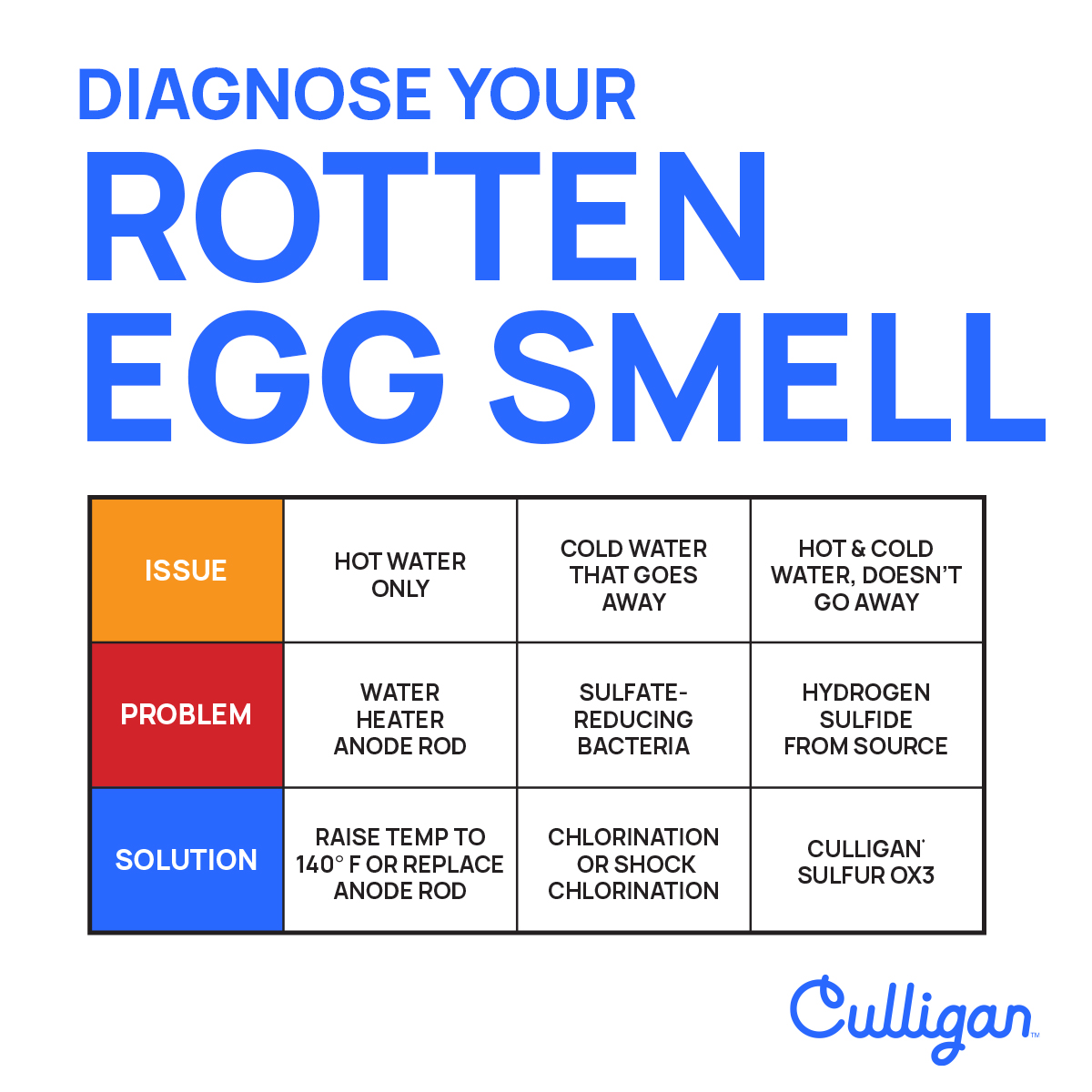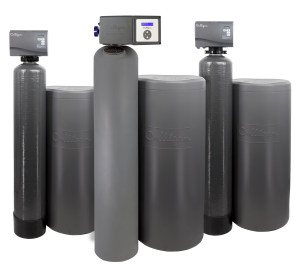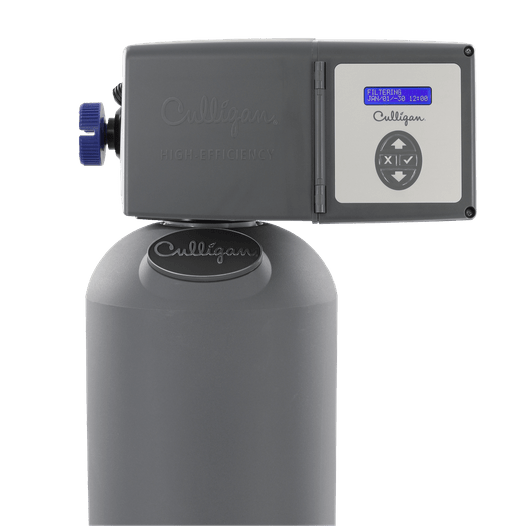Sulfur – What’s That Rotten Egg Smell?
If your tap water smells like rotten eggs—especially when using hot water—you’re likely dealing with hydrogen sulfide gas, a byproduct of sulfur-reducing bacteria, organic matter, or naturally occurring minerals in the water supply. This unpleasant odor can make everyday tasks like drinking or showering less enjoyable and may even cause concern about your home’s plumbing and water safety.
Fortunately, effective water treatment solutions are available to eliminate the odor and restore fresh, clean water in your home.

Why Does My Tap Water Smell Like Rotten Eggs?
Hydrogen sulfide (H₂S) often forms in low-oxygen environments where sulfur-reducing bacteria thrive. These bacteria can exist in groundwater, hot water heaters, or stagnant plumbing systems. When water containing hydrogen sulfide is released from a faucet, it emits a distinct “rotten egg” odor.
The smell may be noticeable only in hot water, cold water, or both—depending on where the gas is forming in your plumbing system or water supply.
Common Sources of Sulfur Smell in U.S. Homes
1. Hot Water Heater Issues
In many households, the magnesium anode rod inside the water heater reacts with sulfate in the water to create hydrogen sulfide gas. This is especially common in homes with mineral-rich well water or high water temperatures. In these cases, the odor is usually present only in hot water.
2. Private Wells and Groundwater
Hydrogen sulfide naturally occurs in some well water supplies due to the breakdown of organic material and mineral interactions underground. Poorly sealed wells or lack of treatment can allow the odor to persist.
3. Municipal Water Systems
Though public water systems are treated to meet federal safety standards, sulfur odors can still develop under certain conditions, especially if water sits stagnant in distribution pipes or household plumbing.
4. Household Plumbing & Drain Systems
Bacteria can also form in sink drains, where trapped organic matter creates an ideal environment for gas-producing bacteria. In these cases, the odor is often limited to specific fixtures.
Where Does the Rotten Egg Smell Come From?
The source of the odor may be:
- Localized contamination, particularly in older plumbing systems
- Naturally occurring sulfur in groundwater or minerals in the soil
- Chemical interactions inside water heaters due to anode rod corrosion
- Bacterial growth in plumbing, water heaters, or storage tanks
- Environmental hazards, such as proximity to septic systems, fuel storage, or landfills
Water Quality Issues Linked to Hydrogen Sulfide
While sulfur in drinking water is typically not considered a serious health hazard, it can lead to several quality-of-life and maintenance problems:
- Skin irritation or dryness after bathing
- Corrosion of metal pipes and plumbing components
- Unpleasant taste and odor in water used for drinking or cooking
- Staining on laundry, porcelain, and silverware
- Scaling on appliances and faucets
Health Considerations for Hydrogen Sulfide in Water
Hydrogen sulfide is regulated under the EPA’s secondary drinking water standards, which address aesthetics rather than direct health risks. However, high concentrations can have negative effects, particularly for:
- Households with existing bacterial contamination
- Children, seniors, or pregnant individuals
- People with respiratory sensitivities or asthma
In poorly ventilated areas or homes with compromised plumbing, excessive hydrogen sulfide exposure may lead to:
- Headaches, fatigue, or nausea
- Irritation of the eyes, nose, and throat
- Reduced air and water quality over time
How to Identify the Source of Sulfur Smell
To pinpoint the source of hydrogen sulfide odor:
- Run hot and cold water separately to determine if the smell is limited to hot water (likely a water heater issue).
- Check drains by pouring a cup of bleach or vinegar and monitoring whether the smell clears—this may indicate bacterial growth in the drain.
- Inspect multiple faucets—if the smell is present throughout the home, it’s likely in the water supply, not the plumbing.
Effective Solutions to Eliminate Rotten Egg Smell
Depending on the source and severity of the odor, there are several water treatment options available:
- Anode rod replacement with aluminum or powered anode rods to reduce heater-based odors
- Activated carbon filtration systems to remove odors and improve taste
- Chlorination and hydrogen peroxide systems to disinfect and neutralize bacteria and gases
- Water softeners with iron/sulfur filtration media to treat high-mineral well water
- Reverse osmosis systems for purified drinking water free from odors or off-tastes
Culligan’s customized treatment plans use proven technology—such as Iron-Cleer®, Sulfur-Cleer®, and portable exchange systems—to target odor at the source.
Proactive Tips to Prevent Sulfur Smell
- Flush water heaters with white vinegar or a descaling solution
- Replace the anode rod every few years as part of maintenance
- Clean and sanitize faucet aerators and showerheads
- Avoid overusing harsh chemical drain cleaners, which may damage pipes and worsen odors
- Monitor salt levels in water softeners to ensure optimal performance
Take the First Step Toward Fresher Water
If you’re tired of living with foul-smelling or discolored tap water, it’s time to act. A local Culligan expert can test your water, identify the cause, and recommend a solution tailored to your home’s plumbing, water source, and needs.
Schedule a free in-home water consultation with your nearest Culligan Water dealer and get on the path to cleaner, better-smelling water—every time you turn on the tap.
Solutions
Suggested Products

Aquasential™ Smart High Efficiency Water Softener
- Smart brine tank auto-monitors salt levels
- Convenient auto-bypass valve
- Reliable non-corrosive valve
- Worry-free maintenance

Aquasential™ Smart High Efficiency Whole House Water Filters
Reduce sediments in your water and contaminants that cause your water to appear, taste, and smell unpleasant. Your system can also lessen the taste and odor of chlorine, and prevent pipe damage and staining from low pH water. Additional customizations include:
- Culligan® Filtr-Cleer® Water Filters – Reduces Sediment Problems
- Culligan® Cullar® Water Filters – Reduces Taste and Odor Problems
- Culligan® Cullneu Water Filters – Reduces Acid Problems

Facebook